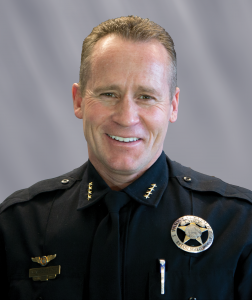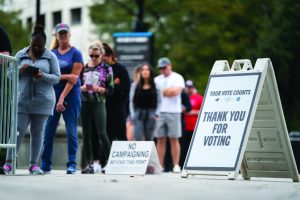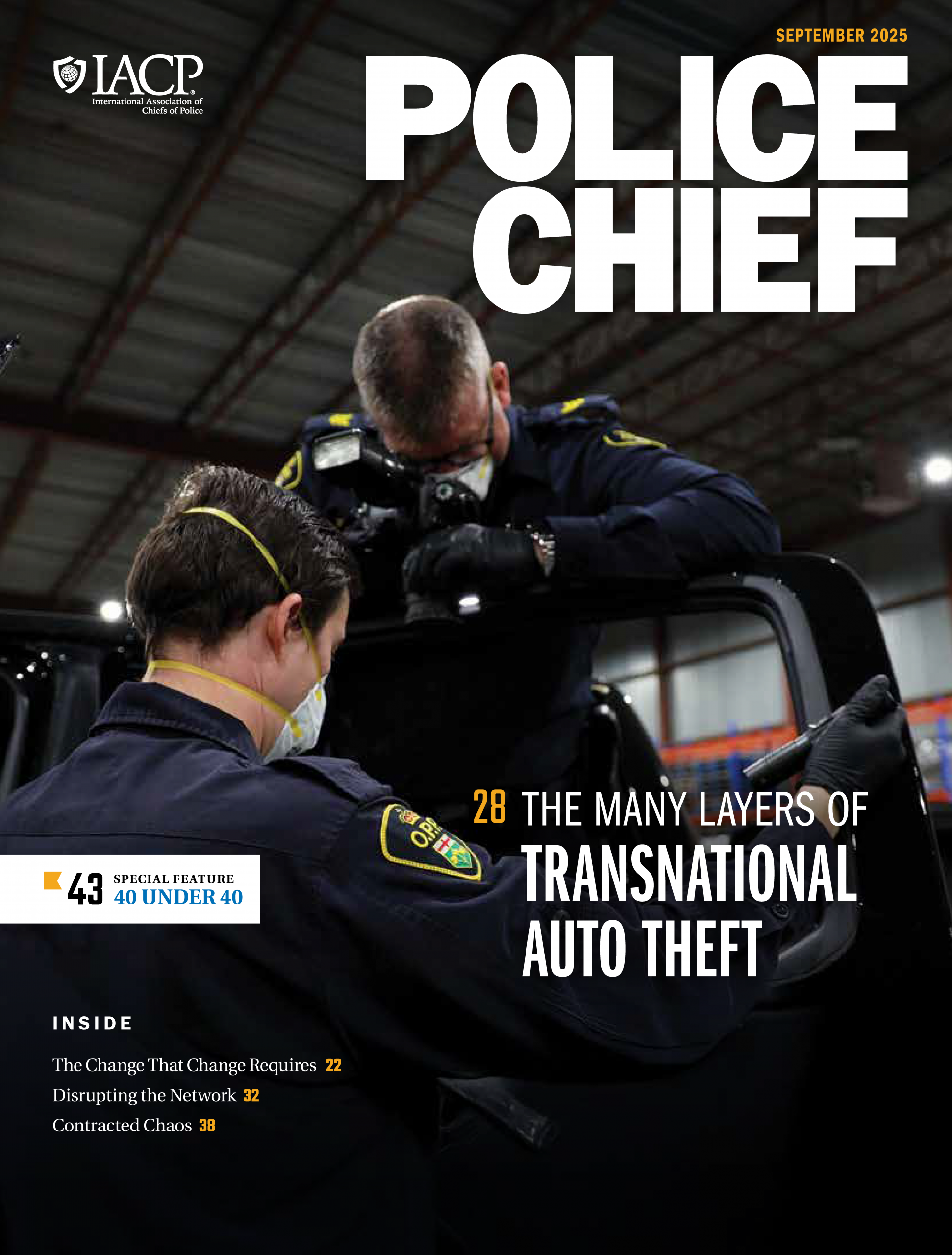
Park City Police Department, Utah
For generations, elections in the United States were remarkably peaceful. People in most communities went to local schools or municipal buildings to cast votes in elections organized by counties and staffed largely by volunteers and temporary workers, often retirees.
Voters usually learned the results the next morning, and losers civilly conceded to and congratulated their opponents. Within weeks, the appropriate transfer of power took place. Threats and violence were exceedingly rare.
This remains true across much of the United States. But there are areas—often in battleground (highly contested) states—where peace and order are not guaranteed on Election Day. As the 2024 election approaches, all police and sheriffs’ departments must spend time assessing and preparing for threats and protests that may take place in their jurisdictions during election season. Furthermore, as the assassination attempt on former President Donald Trump in July indicated, police must also prepare for possible “lone wolf” attacks carried out by individuals who do not represent any organized group.
Police departments in the United States are not alone in these challenges. Law enforcement organizations in democracies around the world grapple with similar disruption, disinformation, and misinformation that have become so prevalent in recent times. While international attention is now focused on the upcoming U.S. election, steps must be taken globally to ensure that even the most fragile democracies remain intact.
In the United States, one risk is that extremists in some communities, possibly supported by outsiders, may attempt to disrupt a local vote with the hope of casting doubt on the legitimacy of the election’s outcome. This means that police officers performing the seemingly mundane task of assisting election staff ensure that ballots and critical electronic equipment remain secure may be key to ensuring our democracy remains viable. This may sound grandiose, but it is true.

Another goal may seem equally mundane while being critically important—the officials who run elections and the workers they employ must remain safe. This is no small task. A report by the Pew Research Center estimates the number of U.S. election workers at more than 700,000.1 The Brennan Center for Justice surveyed these workers and found that 30 percent had been threatened, abused, or harassed, and nearly half fear for the safety of their colleagues.2
Police should begin the work now of contacting their local election officials to determine their needs. Law enforcement personnel should also take a hard look at polling places, drop boxes, places where the votes are counted, and surrounding areas to ensure that they are as secure as possible. Needs will vary from county to county, potentially based on how much the area has been infected by contentious politics or election disinformation. Whether risks are apparent or not, it is best to ask questions now, work collaboratively, and plan to address possible challenges.
Election security is an area where history could also be relevant. Does your community have neighborhoods where, historically, efforts have been made to suppress the vote? In these areas, police should work particularly hard to establish relationships with election workers and community organizers and agree on plans to overcome concerns or fears of potential voters. What is the best way for officers to ensure that voters are safe and that they feel safe? Communicate proactively, ask questions, and listen carefully to input and feedback. Voters—as well as local activists—need to be told early and often that the police are determined to ensure that every voter and worker is safe, whether at polling places or vote-counting facilities.
Multiagency cooperation is essential and effective when addressing most public safety challenges. It is particularly critical during election season. Local, state, tribal, and federal law enforcement must maintain strong lines of communication, share intelligence, and develop multiagency operations plans well in advance. Systems should be in place to monitor potential threats—and strategies agreed upon for addressing disruption and violent acts. Mutual aid plans should be reviewed to ensure cohesive and effective response should demonstrations, threats, or acts of violence take place.
Now is the time to drive home the point that they have an important role in preserving democracy.
Police chiefs and sheriffs need to take a hard look at policies and training to be certain officers are given the support they need to perform effectively during election season. Now is the time to drive home the point that they have an important role in preserving democracy. Not only must they keep workers and voters safe, but they must also ensure that ballots and important electronics have not been compromised so that votes are counted accurately. Joint training exercises involving police officers and election workers on topics such as election law and de-escalation can promote positive working relationships and enhance preparation.
Mark your calendars. The next U.S. general election is November 5. I hope some of the commonsense suggestions outlined in this message and elsewhere in this edition of the Police Chief magazine will resonate not only with law enforcement officials in the United States, but also with those in jurisdictions across the globe who are facing similar challenges. With more than 30,0000 members in our organization, we representant a wide variety of political perspectives, but we also share the common purpose of maintaining the rule of law and protecting the members of our communities.d
Notes:
1Rebecca Leppert, “Key Facts About U.S. Poll Workers,” Short Reads, Pew Research Center, July 25, 2024.
2Ruby Edlin and Turquoise Baker, “Poll of Local Election officials Finds Safety Fears for Colleagues and Themselves,” Brennan Center for Justice, March 10, 2022.
Please cite as:
Wade Carpenter, “Police Play an Important Role in Ensuring Democracy,” President’s Message, Police Chief 91, no. 9 (September 2024): 6–7.


